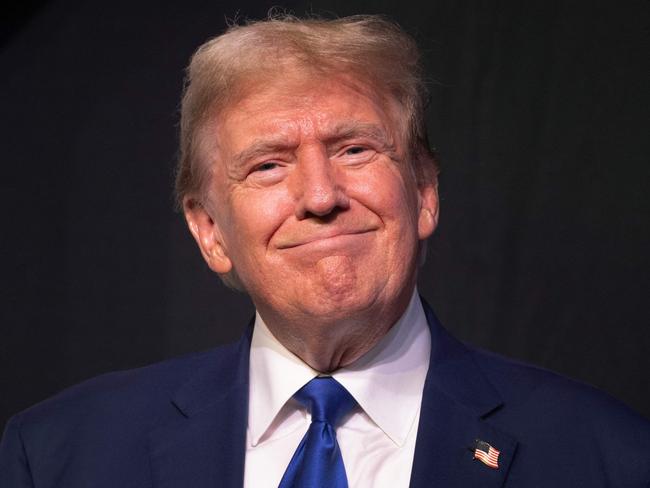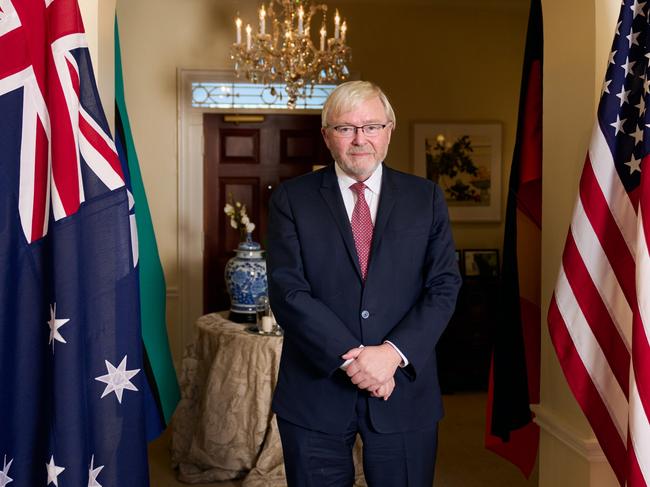Kevin Rudd vs Donald Trump: Why damning messages will remain secret
The government has revealed why it is refusing to release a cache of text messages and emails about Donald Trump calling Kevin Rudd “nasty” and “not the brightest bulb”.
Leaders
Don't miss out on the headlines from Leaders. Followed categories will be added to My News.
EXCLUSIVE
Encrypted messages sent by top diplomats about Donald Trump’s extraordinary broadside against Kevin Rudd will remain secret to prevent further damage to Australia’s relationship with the US presidential candidate.
The former president – who is the presumptive Republican nominee for this year’s election – threatened in March to refuse to work with Australia’s ambassador to the US if he returned to power, saying he was “a little bit nasty” and “not the brightest bulb”.
The Albanese government defended Dr Rudd as the former prime minister ramped up his engagement with allies of Mr Trump, who is neck-and-neck with President Joe Biden in the polls.

But the Department of Foreign Affairs and Trade is now refusing to release a cache of text messages, emails and memos sent by senior diplomats in the wake of Mr Trump’s attack during a TV interview.
Doing so would be “reasonably likely to cause damage to Australia’s foreign relationships”, a DFAT assistant secretary said, such as harming future negotiations or the flow of confidential information with the US. In rejecting a request under Freedom of Information laws, the department cited guidelines that say: “A dispute between individuals may have sufficient ramifications to affect relations between governments.”
Prior to taking on the top diplomatic post last year, Dr Rudd had savaged Mr Trump as “nuts”, “the most destructive president in history” and a “traitor to the West”.

Mr Trump hit back when asked about those comments in an interview on GB News.
“I don’t know much about him. I heard he was a little bit nasty. I hear he’s not the brightest bulb, but I don’t know much about him. If he’s at all hostile, he will not be there long,” he said.
The ambassador has since refused to respond to Mr Trump, with senior members of the Albanese government defending his effectiveness as Australia’s representative in the US. DFAT identified messages about the Republican’s attack sent on multiple devices using Signal – an encrypted app popular with political figures – in the days after it was broadcast.
But a departmental assistant secretary said the files were “exempt in full under the FOI Act”.
“In coming to this view, I have had regard to the nature of this information, the circumstances in which some of it was communicated, and the likelihood and nature of the damage to international relations which could occur in the event of disclosure,” she said in her decision.
It was revealed last month that Dr Rudd had not had any formal contact with Mr Trump or his campaign team as they plotted his return to power, although the ambassador said in January that he was in regular contact with senior figures who could join a second Trump administration.
More Coverage
Read related topics:Donald Trump





